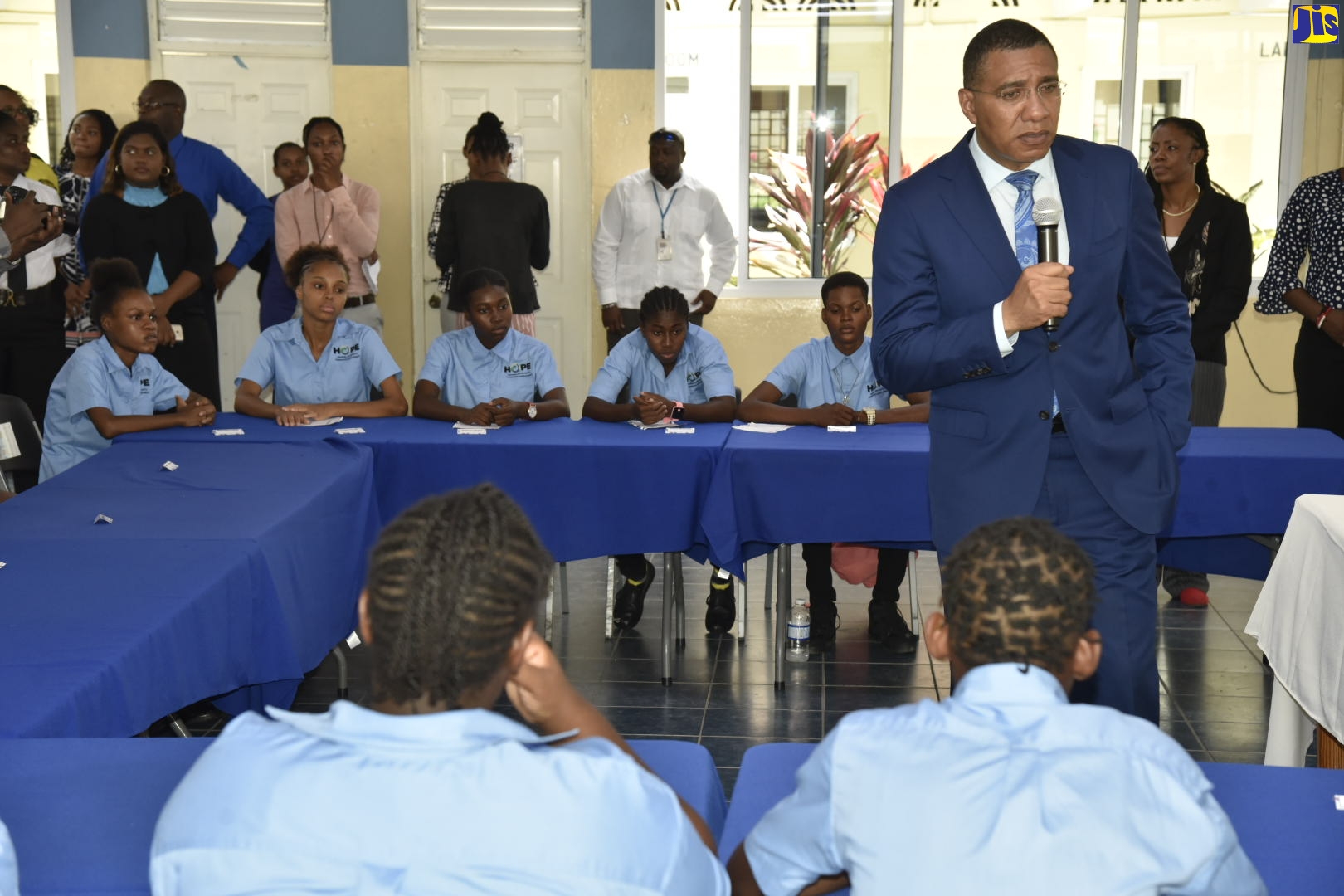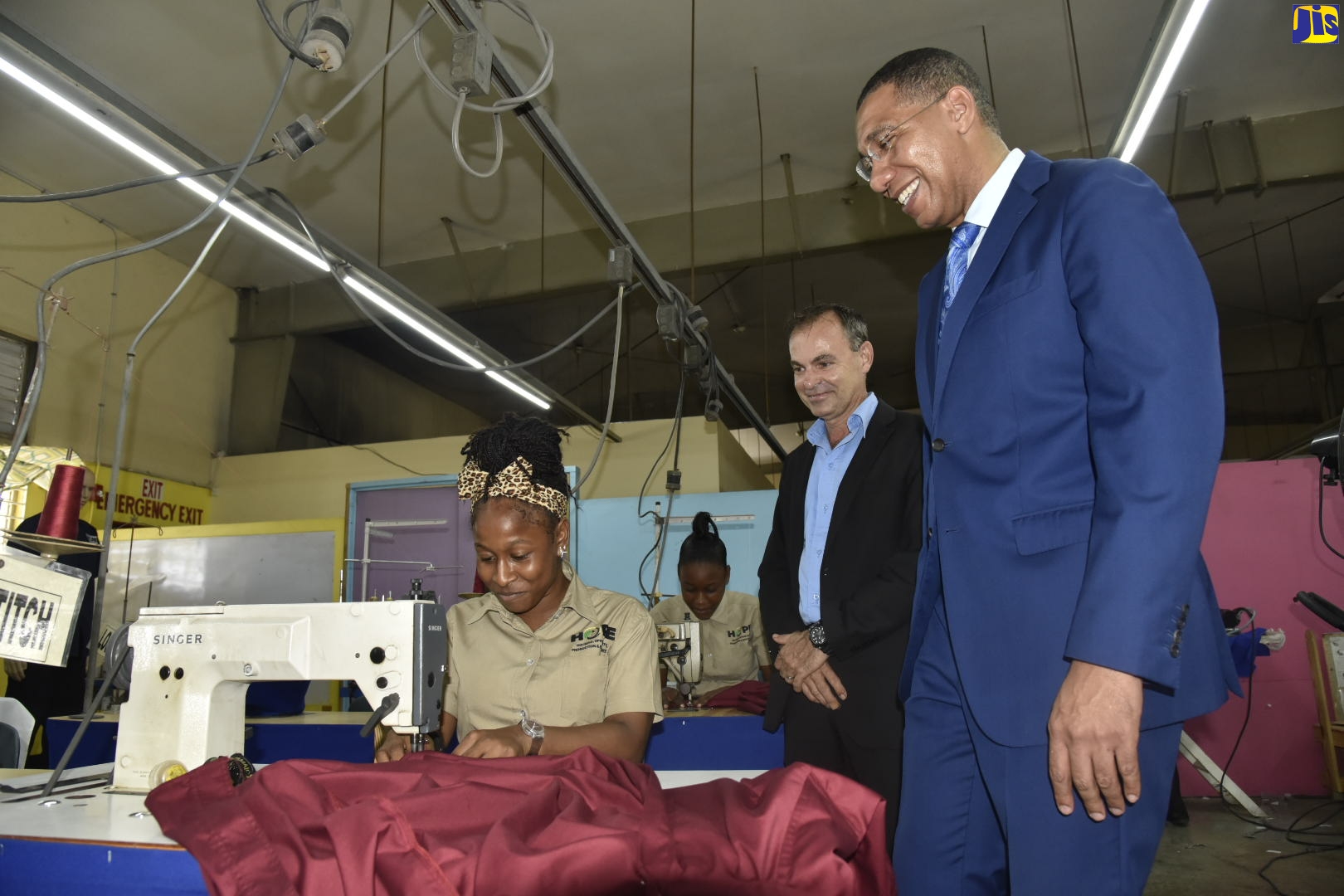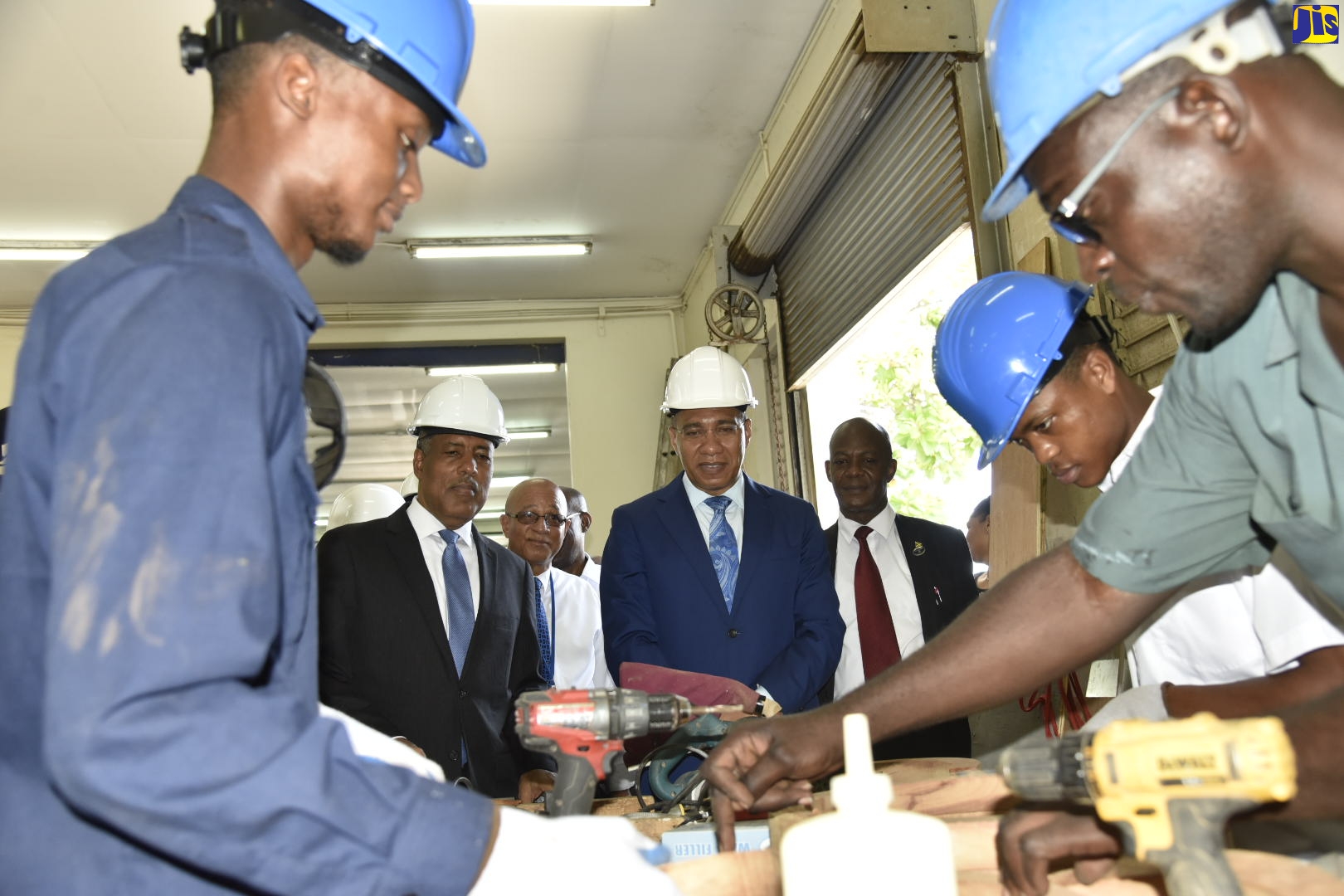HOPE Programme’s Next Phase to be Rolled Out Soon
By: , July 25, 2019The Key Point:
The Facts
- This, he said, will entail institutionalising the employment and training aspect of the programme.
- “I am very satisfied [and] happy to see the programme come to this point where we can now say we have tested it, it has worked and we are now going to bring the programme to the institutional phase where it will be a constant feature of the development of Jamaica,” he said.
The Full Story
Prime Minister, the Most Hon. Andrew Holness, says the next phase of the Government’s training and apprenticeship initiative, the Housing, Opportunity, Production and Employment (HOPE) Programme, is to be rolled out shortly.
This, he said, will entail institutionalising the employment and training aspect of the programme.
“I am very satisfied [and] happy to see the programme come to this point where we can now say we have tested it, it has worked and we are now going to bring the programme to the institutional phase where it will be a constant feature of the development of Jamaica,” he said.
The Prime Minister was speaking during the final stop of a tour of HOPE projects across the Corporate Area on Wednesday (July 24).
Mr. Holness further explained that consequent on its impending institutionalisation, HOPE “will probably move from the Office of the Prime Minister [and be placed] under some other agency that can carry it more effectively”.
The Prime Minister noted that the opportunities component is being developed and will be launched soon along with the production aspect.
“We have already decided that for the production component, we are going to be focusing on getting young people into agriculture using technology,” he said, adding that details of the housing component, which was launched recently, will be provided at a later date.
Mr. Holness noted that HOPE has proven to be successful thus far, having benefited 24,000 youth over the last two years, who have now become examples of and ambassadors for the programme.
He indicated that 6,000 youth now being training under the programme are “doing very well”, adding that there are plans to increase this number by the end of the 2019/20 fiscal year.
A majority of the current participants are part of the Digitization and Record Management Corps and are involved in the digitisation of government records, which Mr. Holness described as a “complex and involved project”, of which the participants are “doing an excellent job”.
HOPE, which was launched by the Prime Minister in 2017, targets persons aged 18 to 24 who are not employed or enrolled in a school or programme of training. It aims to build character and provide opportunities to develop employable skills.
Mr. Holness said the programme has been transformational in terms of the participants’ personal development, noting that he has seen a significant change in the attitude and demeanor of the interns who have graduated from the programme or are in their second iteration.
This, he said, is noticeable in the way they communicate, the self-confidence they exhibit, their understanding of interpersonal relationships, personal etiquette, and the “air of responsibility around them”.
“It tells me that the programme has been effective in carrying them through a course of, not just gaining knowledge but having the experience that would have influenced their character and inculcated certain core principles that [will stay with them] when they leave the programme,” he said.
In the meantime, Mr. Holness implored all participants to make the best of the opportunity afforded to them through HOPE which, he noted, will empower them with the skills, knowledge and attitude to adequately deal with challenges of their lives.
“You have made the first good decision that will determine the rest of your lives,” he assured.
During the tour, the Prime Minister interacted with interns and facilitators attached to HOPE Programme partner organisations.
These entities include the National Housing Trust head office in New Kingston; the Island Traffic Authority’s motor vehicle examination depot, in Swallowfield; the Supreme Court, in downtown Kingston; Port Authority of Jamaica Newport East facility; HEART GARMEX Training Institute; and the site for the construction of the Olympic Gardens Police Station.
The HOPE programme is a one-year engagement. The initial training, which focuses on core skills development, includes a values and attitudes component, followed by basic skills training component, after which participants serve as apprentices and are paid a stipend.
At the end of the apprenticeship period, participants would have gained skills and certification as well as employment within various government ministries, departments, and agencies.






